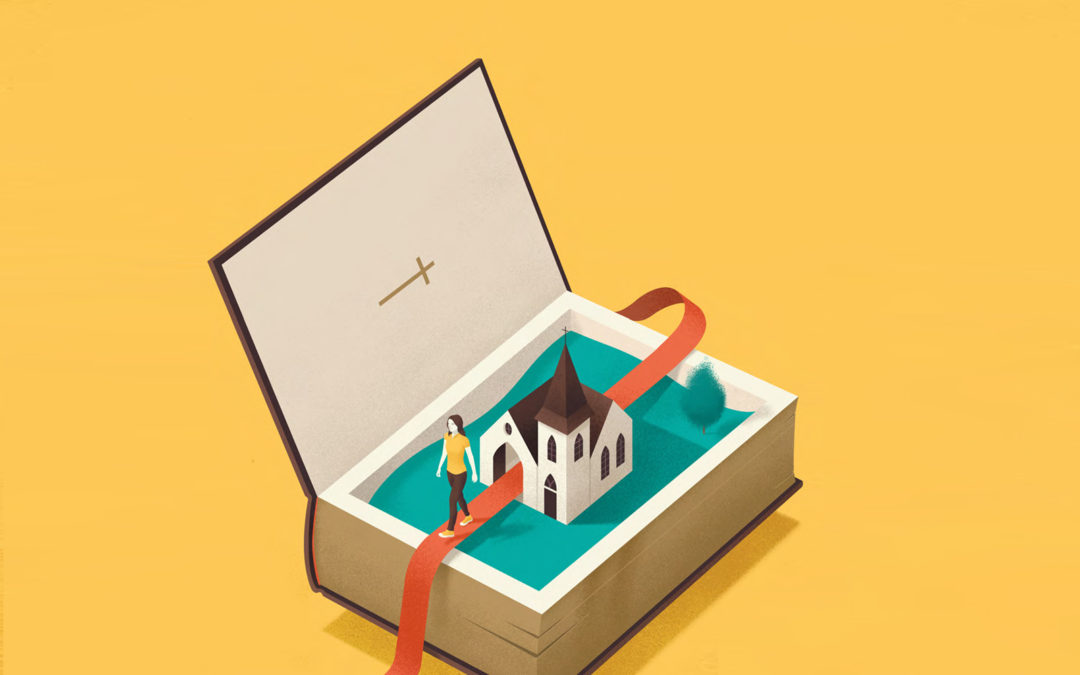—by Elizabeth Hunter
We church people are flawed, stumbling, redeemed saints. But can we handle that fact? What do we do when our church has deeply hurt people or creation? Apologize? Admit that we’re missing something?
In this final issue on the topic of repentance, Katrina Browne (p. 26) urges us to take an honest look at the difficult realities of the church’s complicity in slavery, segregation and racism. If you have any doubts that this was also a reality for Lutheran churches in North America, a closer look at church history and a visit to the ELCA Archives may be helpful.
What do we really know about our history? For example, growing up I enjoyed learning about my own family history, despite some of the wrongs that had affected us and those we loved. One relative had experienced domestic violence; another had survived childhood sexual abuse. My grandmother’s grandmother, a slave in the South, was cruelly beaten by a slave-mistress. Other relatives had faced painful family and financial challenges in Norway and Denmark that caused them to immigrate to the U.S.
But I was a little shaken a few months ago, when a Lutheran pastor happened to tell me about a castle on the southern coast of Ghana that is quite popular with tourists. From this pastor, I learned that it wasn’t just the Portuguese, Dutch and British who led the transatlantic slave trade. With a sinking heart, I absorbed (and confirmed via Google) that the Danes (at that pre-independence point in time, Denmark-Norway) had also built slave castles (using slave labor) and from 1671 to 1803 trafficked and enslaved people who looked like me.
In other words, my people were hurt by my people.
It gets worse. The pastor described how some of my people were locked in the pitch-dark, damp lower levels of the castle, subject to torture and rape before being shipped off to enslavement across a vast ocean. At the same time, in the upper levels of the castle, where light streamed in, some of my people held worship, sang hymns and said prayers.
History matters, as Bible study author Meghan Johnston Aelabouni writes, “not only to us who call ourselves Lutheran Christians today, but to our neighbors who have suffered because of the sins of the church, and those who have looked to the church for hope and help only to find a closed door” (p. 23-24).
Some aren’t afraid to apologize. In 1994, the ELCA apologized for the anti-Semitic writings of Martin Luther, which contributed to the Holocaust, as well as the complicity of most German Lutheran churches during the Nazi regime (p. 23). And in 2017, Denmark’s foreign minister, Anders Samuelsen, made an apology to Ghana for Denmark’s “shameful and unforgiveable” role, saying “nothing could justify the exchange of men, women and children Denmark participated in.”
Grounded in God’s word and the work of repentance, we as church people can turn away from everything that is not love and turn back to God. In learning to walk with God and each other, we open
the way for healing and reconciliation in the world. Because it’s entirely possible that what we’re really missing is simply this: each other.
Linda Post Bushkofsky, who tearfully sings “For All the Saints,” reminds us that “sacred community forms the basis for our lives as Christians” (p. 40). Someday all (not some) of us will gather “singing praises to our Triune God,” she writes. Picturing the communion of saints, all of us, overwhelms me, and I find myself weeping as well. What a fellowship. What a love divine.
Elizabeth Hunter is editor of Gather.
This article is from the November 2018 issue of Gather magazine. To read more like it, subscribe to Gather.


